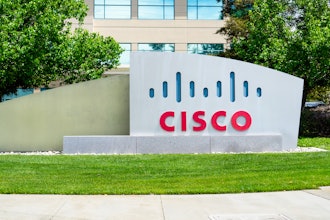CNN Tech taught me a new word: Undecillion.
That’s right… we’re making stuff up now. Numbers, in fact.
If forced to guess what exists an undecillion times in our world -- in order to require this made-up sounding number -- I might start with plankton or fleas, grains of sand or former child actor felonies. Give up?
Let me back up: we've seen the day where, quite unceremoniously, the internet “ran out” of space. This refers to the number, to date, of the last free internet addresses available from the current pool (of 4.3 billion) used for most of the web's history.
Luckily, it turns out, the tech powers that be have been prepared for this event for over a decade and have developed a back-up database of -- here we go -- 340 undecillion: 340 trillion groups of a trillion networks, each with a trillion addresses.
Sit back for a second while this brain-exploding number sinks in.
The comedy of these whopping figures doesn’t appear to register with the subject of this recent CNN article -- John Curran, CEO of the American Registry for Internet Numbers. "A billion sounds like a lot," Curran said. "But when you think that there's nearly 7 billion people on the planet, and you're talking about two, three, four, five addresses per person (for some Web users), obviously 4.3 billion isn't enough."
Five addresses per person? This is ludicrous! This is an exaggeration! This is… oh my god. This is me.
Between my smart phone, desktop, work laptop, work desktop, and multiple personal and professional web URLs, I am tipping the scales here. Besides writing about it, I never really viewed myself as more of techie than anybody else. Maybe that’s the problem with all of us: the default, basic American tech user has become an IP address glutton. Good thing I’m not paying property taxes on all of these.
That said, this new Candy Land for IP addresses is essentially giving us the green light to keep multiplying. There is something kind of cool about this prospect, and also kind of scary. While this number isn’t infinite, it is for our practical purposes, for now. So even if only a fractional amount of this nonsensical number were to materialize into additional websites? It still sounds like a colossally big world, and a lot of competition.
In a world where physical space becomes more confined, cyber space is starting to look like flying over Wyoming must feel like for a bird -- until the addresses, one by one, are parceled out, and your tiny .com diminishes in the swelling masses. The number made me laugh at first, and then it made me think: If my web competition were to double, triple, quadruple -- whatever -- over the next decade, would I be ready? Is my search engine optimization up to snuff? Am I maximizing meta-tagging and keywords to the best of my abilities to make sure my core audience can locate me? Because the bigger the web gets, the harder it’s going to get to be found.
At the very least, it’s worth an analytical review, every so often, of your availability to your customers on the web. As the weeds get higher, having the right search terms and a good Google ranking will become more and more valuable over time -- because, whether you like it or not, you don’t necessarily need to go anywhere in order to disappear.
And in the meantime, my bet—let’s make it interesting… say, $340 undecillion? -- is on our increasing tendency to let technology topple us with its sheer magnitude.
Instead of saying the internet “ran out,” we’d be better off saying it just got a whole lot bigger. Let the games begin.
Email your thoughts to [email protected].






















